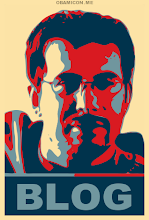BY STEVEN TAVARES
The Pioneer
Coming precariously close to ringing the financial panic button, Congressman Pete Stark told a group of San Leandro residents to secure their bank accounts as the nation falls closer to an economic meltdown.
“I'm going to urge each of you to seek advice over the next week from someone who isn't selling anything, not from a broker or a financial adviser, but from someone who you think has good financial understanding about whatever you might do,” said Stark.
He acknowledged the current financial crisis is the greatest threat to the pocketbooks of regular Americans since the Great Depression.
“We're in deep trouble,” said Stark, “Perhaps the most serious crisis since the 30's—probably worse. In the 30's we were not interdependent on other countries economies. Today is a different world. We are effectively owned by other countries.”
Stark, who founded Security National Bank in 1963 and parlayed it into a congressional career that has seen him re-elected 16 times to Washington, gave the group a bit of financial advice.
He called individual savings accounts, which are secured up to $100,000, “as sure a bet as you're going to get.”
He went further, advising those with money market accounts to think about switching them to FDIC-secured savings accounts.
We're going to have to pay for this thing. I've looked and I've looked and there is no tax fairy who's going to put that money under my pillow. - Stark
Money market accounts, which typically have higher yields also include some financial risk in return, have been hit hard by the downturn in the economy, despite an infusion of $50 billion by the Treasury last Friday.
The advice conjured up ominous images of Depression-era borrowers standing in long lines to withdraw their life savings from banks.
Transferring such accounts usually comes with penalties that Stark believes should not deter bank customers from looking at the bigger financial picture.
“I would give up a little income to make sure my cash is safe.”
Stark says a vast majority of the $700 billion bailout proposed by the U.S. Treasury will be borrowed from overseas institutions such as China, Japan and Europe while cautioning that “taxpayers will foot the bill for this.”
The bailout urged upon lawmakers in Washington was formalized last Saturday while Stark was en route to three scheduled town hall meetings in the East Bay.
Like many Democrats, he vowed not to support the bill that fails to aid borrowers struggling to make monthly mortgage payments and taxpayers soon to be burdened with a large increase in debt resulting from a financial crisis simmering on the edge of boiling over for much of the past year.
“All of it goes to large Wall Street firms, there's nothing about protecting the taxpayers or homeowners or even renters whose apartments may be foreclosed,” said Stark, “I certainly couldn't vote for it in its present form. I have no interest in bailing out Bank of America or Wachovia.”
The fallout resulting from the government takeovers of mortgage lenders Fannie Mae and Freddie Mac, the bankruptcy of Lehman Brothers and the $85 billion loan to insurance giant American Insurance Group will effect people of Main Street, said Stark.
He foresees people having trouble paying their Medicare premiums and having difficulty paying for higher education.
Seniors, he believes, will be hit hardest as their monthly Social Security checks will lose spending power, in addition to the shrinking of their nest egg, if they are fortunate to have one in place.
While calling Social Security “secure”, Stark did mock the idea of the Republican's dream of privatizing the New Deal-era benefit as dead in the water.
“The idea of privatizing Social Security is gone. I think we've put that one to rest,” Stark told the gathering of mostly seniors at City Hall, “If anyone want to invest in Merrill Lynch—it isn't there”
Those grossing a half million dollars a year stand to face higher taxes as a result of the recent financial jitters and bailouts, Stark believes.
“We're going to have to pay for this thing,” said Stark, “I've looked and I've looked and there is no tax fairy who's going to put that money under my pillow.”



No comments:
Post a Comment